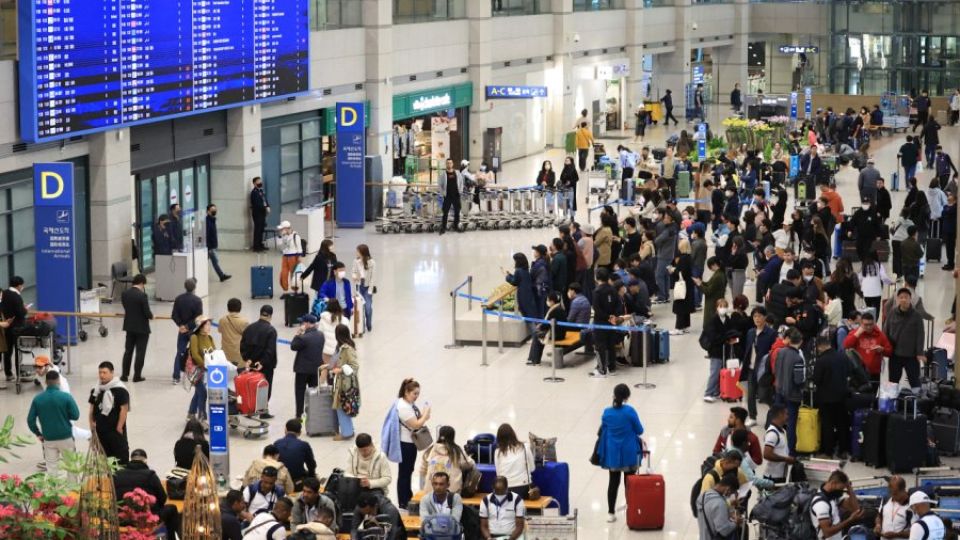March 30, 2023
SEOUL – South Korea will exempt visa-free foreign entrants from using the electronic travel authorization system, or K-ETA, normally required when entering the country until next year, in a bid to rekindle tourism, the Finance Ministry said Wednesday.
Of 112 visa-waiver countries, the exemption scheme for the Electronic Travel Permit System will be applied to 22 select countries with a large volume of visitors and low rates of visa application rejection, including the United States, Japan, Hong Kong and Taiwan.
The government aims to attract more than 10 million tourists to the country in 2023, compared with 3.2 million people last year.
This is a part of the government’s package of plans to reinvigorate its domestic demand, which relapsed again due to interest rate hikes and concerns over an economic slowdown, after showing brief signs of recovery following the lifting of COVID-19 social distancing measures.
“In addition to the government’s efforts to stabilize people’s livelihoods and expand exports, we need to think about ways to create new economic added value by revitalizing domestic demand,” said President Yoon Suk Yeol while presiding over an economic meeting at the presidential office in Seoul on Wednesday.
“In particular, in preparation for the visit of many foreign tourists to Korea, the visa system should be improved for convenience and (the number of) flights should be increased as soon as possible,” he said.
Foreign language services such as Chinese and French will be added to the K-ETA system, and the validity period will be extended from the current two years to three years.
The government will also restore transit visa exemptions for transit passengers, which had been suspended due to the spread of COVID-19, from 34 nations, including Europe and the United States, to enable them to stay for up to 30 days.
Tourist groups from China can stay for up to five days in the city where the domestic airport that they use is located or in the Seoul metropolitan area if they transit through Jeju Island.
The government has also decided to actively increase the number of international flights to China, Japan and Southeast Asia to recover up to 80-90 percent of the number before the pandemic.
The government will increase flights to and from China to 954 per week by September from the current 63 flights, and those for Japan will rise to 1,004 per week from the current 863 flights.
“We will expand incentives and strengthen efforts to enhance travel convenience to improve tourism and consumer conditions,” Finance Minister Choo Kyung-ho said.
More than 130 regional festivals nationwide are to be expanded. Coupons will be provided in connection with local festivals and the free entrance to public institutions and facilities will also be increased.
The government plans to temporarily raise the income deduction rate for cultural and traditional market expenditures by 10 percentage points. The cost of admission to amusement facilities and cable cars will also be recognized as part of corporate cultural business promotion expenses.
Authorities will also promote the use of annual leave for public officials in April and July and encourage discretionary school closures to create a more travel-oriented atmosphere. They also plan to escalate the spread of the “travel-friendly work system” by supporting accommodation costs.
Large festivals and events tied to K-pop, shopping and cultural items will also take place.
“In connecting various cultures and tourism, we need to develop traditional markets into a cultural product to draw in the crowds,” the president said.
Major K-pop concerts will take place across the country from May through October, including the Seoul Festa 2023 slated for April and a concert to be held in the port city of Busan in May.
The government will also strengthen support for mom and pop stores and small business. Shopping festivals led by small business owners will be held three times a year. The purchase limit of shopping vouchers will be raised to support the expansion of demand in traditional markets.


